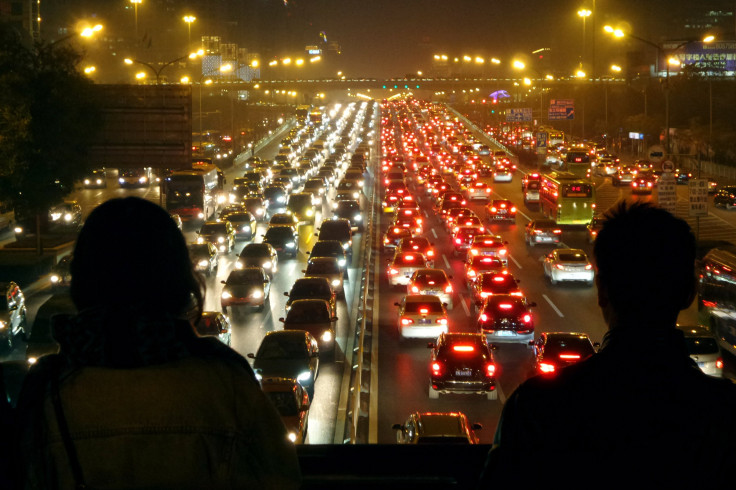Beijing To Kick Out Or Close 300 Companies As City Population Soars To 21.5 Million; Scores Of Markets To Be Closed

Beijing’s mayor plans to curb the city's population growth, which climbed to 21.52 million last year, and alleviate related pollution and traffic congestion by moving out of the city or closing some 300 companies. The city also will shut down scores of markets.
Last year, Beijing’s population grew by approximately 368,000 people, China’s Xinhua News Agency said Saturday. While this is the smallest growth since 2011, Beijing officials announced a plan to control the city's population by moving out or closing down employers, including polluters like furniture manufacturers, that hire migrants from other Chinese provinces. Beijing Mayor Wang Anshun said he hopes a significant portion of Beijing’s 8.19 million migrant workers -- more than a third of the city's population -- will naturally follow their employers out of town.
Besides moving or closing businesses, officials will move out of the city 36 large markets that sell such items as household goods and clothing.
“It will mean moving some polluting industries out of the city, along with some labor-intensive ones," Wang said in a report. "The labor force supporting those industries will move with them.”
Wang made a point to say that migrant workers are still welcome in Beijing, but in a controlled manner. Beijing aims to adopt a point system, similar to one in Shanghai, that will allow migrant workers to claim permanent residency based on criteria like duration of residency and taxes paid.
“We cannot flatly forbid migrant workers from coming,” Zhang Cuixi, a deputy representing West Beijing’s Shijingshan district, said in the report. “Relocating the industries and removing the markets is the way forward.”
The residual effects of reduced pollution are not expected to be significant. The industries being moved or closed, which attract a significant number of migrant workers, aren’t the city’s biggest polluters, so their departure is not expected to significantly reduce the area’s toxic smog. Heavy industries, which include steel, glass, coke (a kind of industrial fuel) and cement production, are consistently the biggest polluters. Wang’s report failed to mention whether the new plans would affect those industries.
Now cities near Beijing are concerned that moving industries out of the capital into their communities will simply cause them to have population or pollution problems of their own. To alleviate such concerns, Wang vowed not to “irresponsibly” shift polluting industries to neighboring city of Tianjin or Hebei province.
© Copyright IBTimes 2025. All rights reserved.





















